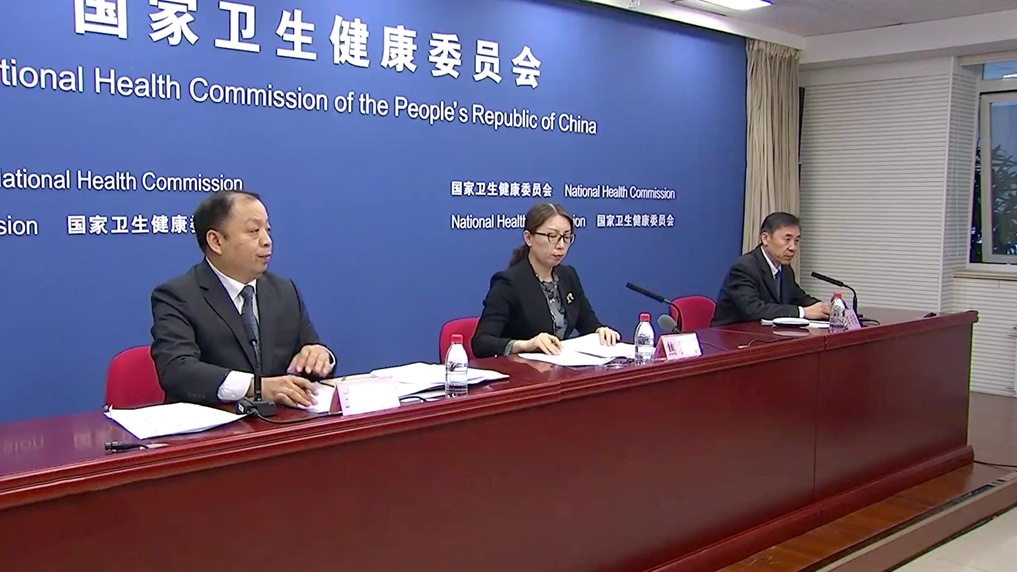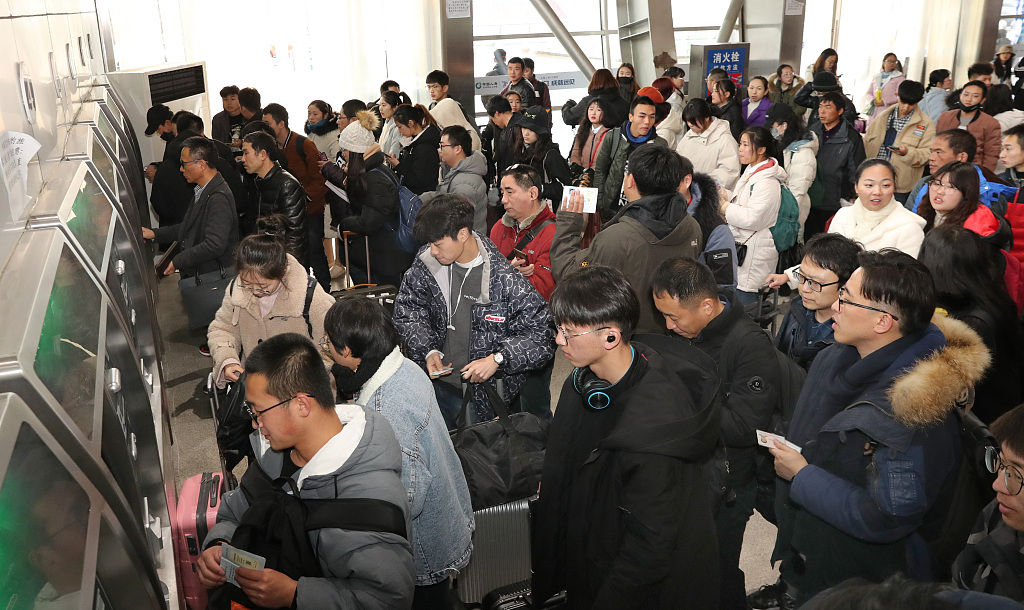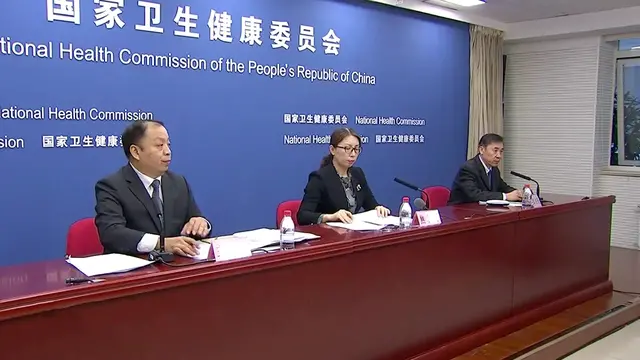
Stronger human to human transmission, the Spring Festival rush, and the development of detection reagent have contributed to the sudden rise of the confirmed cases of the novel coronavirus pneumonia recently, the expert said.
Jiao Yahui, deputy chief of medical administration and supervision for the National Health Commission (NHC), said on Tuesday at a press conference that 4,310 medical personnel of 30 units have arrived at Hubei Province.
"Thirteen units with about 1,800 medical personnel will arrive at Wuhan today," Jiao told the press.
Short on medical resources
With the number of suspected cases continues to rise, Wuhan has been experiencing shortages in medical resources.
Jiao introduced the "10+10" mode: 10 large-scale hospitals provide medical personnel and technology, while 10 small-scale hospitals as designated hospitals, and provide space and beds for suspected and confirmed patients.
The two new hospitals, Huoshenshan and Leishenshan, are under construction. Huoshenshan is scheduled to be completed on February 2, while Leishenshan on February 5. The two hospitals are expected to provide 2,300 beds for new coronavirus patients.
"There are more than 10,000 patients admitted to the fever clinic every day in Wuhan according to our monitoring," said Jiao.
Currently, 59 hospitals in the city have 24-hour fever clinics, with an average of 174 medical personnel per hospital.
"About hospitalization, Wuhan has requisitioned over 10,000 beds in hospitals, and with more than 6,000 medical personnel coming from across the country, we can say that patients' difficulties in seeking medical treatment have been greatly alleviated," Jiao told the press.
"The medical personnel are at high risk of infection. Wearing the N95 mask for too long can cause lack of oxygen, and they can't go home… The psychological pressure from all aspects is huge," Jiao said, adding that they have arranged psychological counseling for medical personnel, and will strengthen protection training.
The sudden rise of confirmed cases

File photo of the Spring Festival Rush in China. /VCG Photo
Over the past three days, the number of confirmed new coronavirus cases across the country has increased dramatically.
There were over 600 cases confirmed on January 25 and over 700 on January 26. The confirmed cases reached over 1,700 on January 27, a huge rise compared with the previous data.
Feng Zijian, deputy director general of the Chinese Center for Disease Control and Prevention (CCDC), mentioned three reasons for the sudden rise:
Stronger human to human transmission: Feng said one patient of the new coronavirus pneumonia can infect two to three people on average.
"The cases of new coronavirus multiplies faster than SARS," said Feng, adding that it took about nine days for the number of SARS cases to multiply, but the multiply period for the new coronavirus cases is about six-seven days.
Spring Festival rush: The outbreak started at the beginning of last December prior to the Spring Festival rush. Travelers, especially those from Wuhan, have been traveling across the country, which quickened the spread of the virus.
Development of detection reagent: Feng said the development of detection reagent also contributed to the sudden rise of the confirmed cases. The NHC authorized the use of detection reagent to Wuhan Center for Disease Prevention and Control on January 16, the detection accuracy has been increasing with the development of the technology.
Asked why there are fewer discharged patients while the number of the confirmed cases continues to raise, Li Xingwang, chief expert in infectious diseases in Beijing Ditan Hospital, said at the Tuesday press conference that it takes about one week for mild cases, two weeks, or longer, for severe cases, to recover.
Li told the press that patients have to pass the nucleic acid tests twice to ensure that they are not infectious.
"The number of discharged patients will increase over time," he said.
Some infected people have been observed to have no obvious symptoms but have tested positive in nucleic acid.
"Such patients can also spread the virus," Li warned, adding that most of the patients with no symptoms are close contacts, and they need to be put under medical observation.
"The battle with the new coronavirus will last longer than with SARS," said Zeng Guang, chief epidemiologist at the CCDC. "The climate of spring will help us control the spread of the new coronavirus."
(Top image via CCTV)
 简体中文
简体中文





